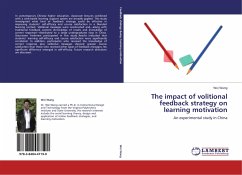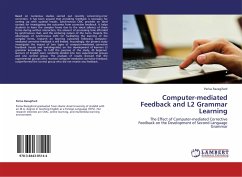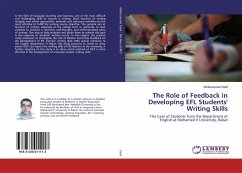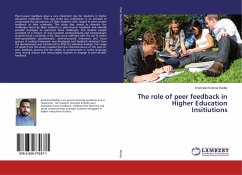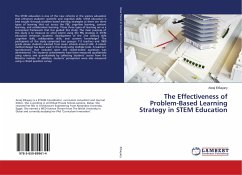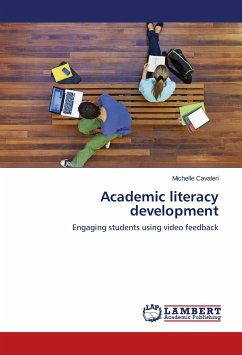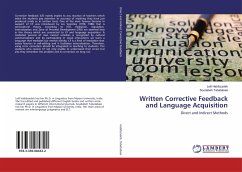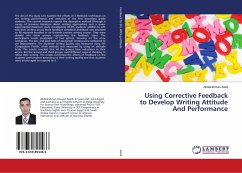In contemporary Chinese higher education, classroom lectures combined with a web-based learning support system are broadly applied. This study investigated what kind of feedback strategy could be effective in improving students self-efficacy and course satisfaction in a blended learning context. Volitional messages were constructed and along with traditional feedback content (knowledge of results and knowledge of correct response) distributed to a large undergraduate class in China. Sixty-seven freshmen participated in this study. Results indicated that students learning self-efficacy and course satisfaction were significantly correlated. In addition, participants who received the knowledge of correct response plus volitional messages showed greater course satisfaction than those who received other types of feedback messages. No significant difference emerged in self-efficacy. Future research directions are discussed.
Bitte wählen Sie Ihr Anliegen aus.
Rechnungen
Retourenschein anfordern
Bestellstatus
Storno

